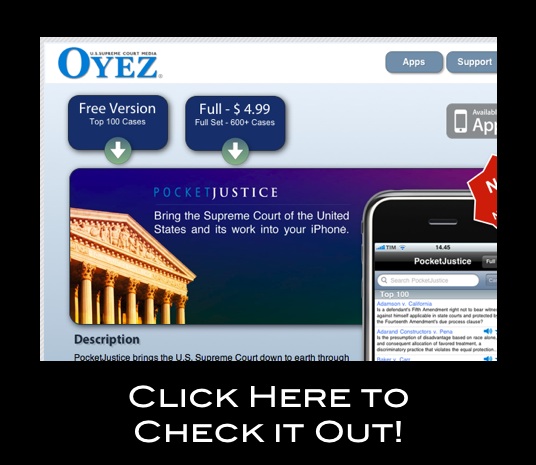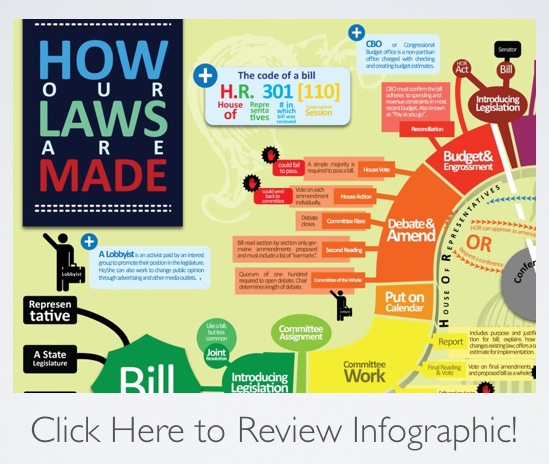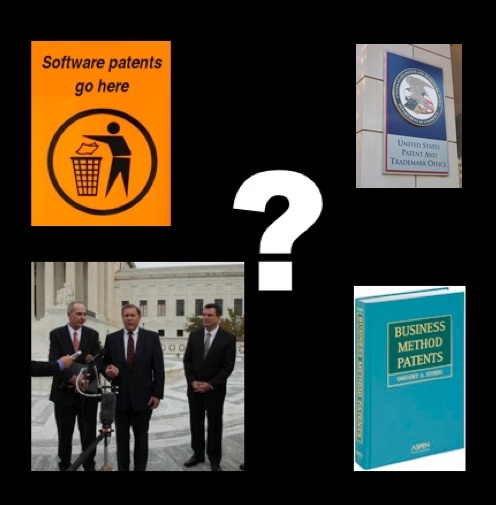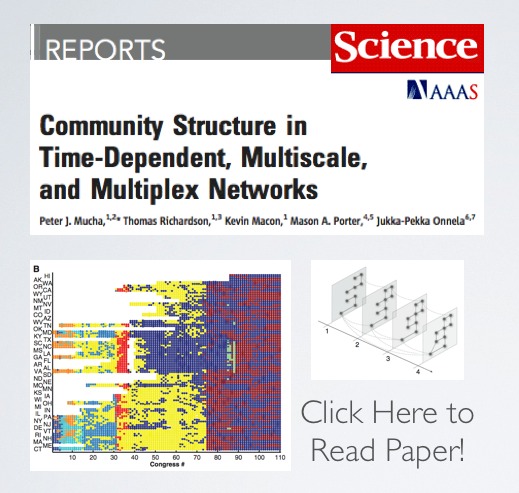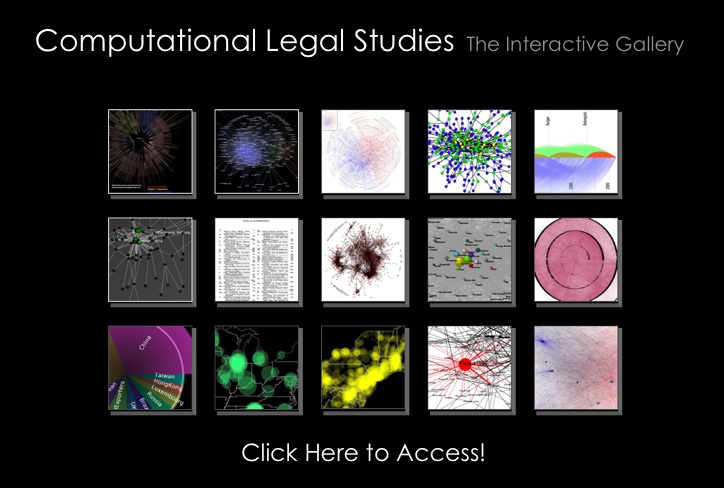Jerry Goldman (Northwestern/ Oyez Project) has recently released a great app for those wanting to quickly access SCOTUS case summaries and/or audio recordings from their Iphones. The top 100 constitutional law cases are made available for free–thanks to the good folks at Justia. Those looking for the full 600+ cases can access them for the low price of $4.99.
Here is the complete description – “PocketJustice brings the U.S. Supreme Court down to earth through abstracts of the Court’s constitutional decisions and access to its public sessions. The application includes voting alignments and biographical sketches for all justices. PocketJustice harnesses recordings of the Court’s public proceedings to deliver hundreds of hours of oral arguments and opinion announcements. In many of these cases, PocketJustice provides synchronized, searchable transcripts identifying all speakers. This version offers information and audio for the top 100 constitutional law cases. The complete version ($ 4.99) provides information and audio for all 600+ constitutional law cases in the Supreme Court canon.”

